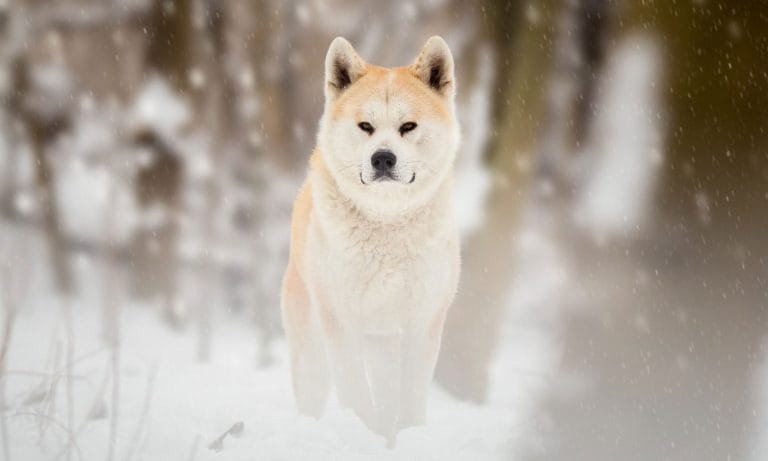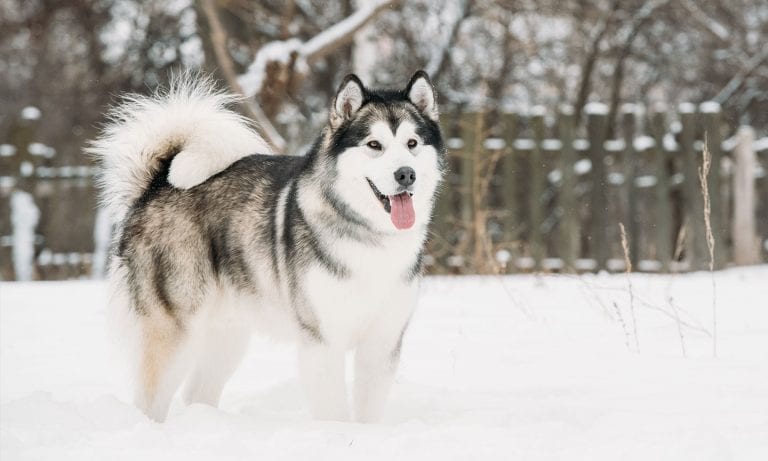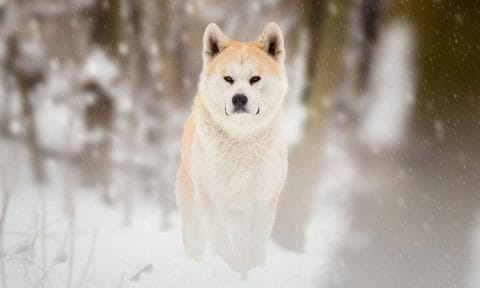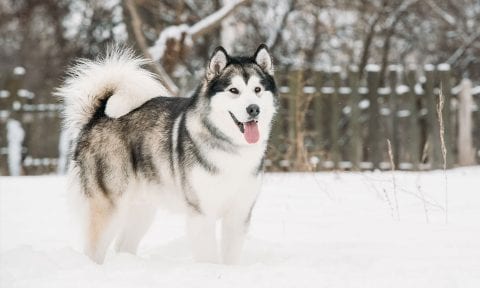Akita vs Alaskan Malamute

Breed Snapshot
Best For
Loyal and independent, Akitas are best for homes of any size with experienced pet parents who can provide long, daily walks and plenty of quality time. Consistent training and a committed pet parent contribute to...
Loyal and independent, Akitas are best for homes of any size with experienced pet parents who can provide long, daily walks and plenty of quality time. Consistent training and a committed pet parent contribute to a successful and loving Akita companionship.
Akita Temperament
Quiet and dignified, Akitas are loyal dogs who love spending time with their families. They’re intelligent and fairly energetic, so they’d enjoy both mental and physical activities, like going on long walks together or solving doggy puzzles. Social butterflies they are not. Akitas often feel cautious a...
Quiet and dignified, Akitas are loyal dogs who love spending time with their families. They’re intelligent and fairly energetic, so they’d enjoy both mental and physical activities, like going on long walks together or solving doggy puzzles.
Social butterflies they are not. Akitas often feel cautious around strangers. Because of their more aloof personality, they’ll benefit from extra socialization and training while growing up. Still, it’s best to supervise them closely around other pets or young children, especially once your pup is fully grown. Akitas may actually do best as the only pet in a home without small children or babies around.
Originally bred to serve as guard dogs, Akitas have a strong bite force and will monitor what’s going on in the home while they’re spending time with you. A good pup parent will provide proper training and socialization to ensure their dog knows the difference between a foe and friend.
Akita Traits

Breed Snapshot
Best For
Alaskan Malamutes live for outdoor adventures and are devoted to their family. Strong and affectionate, they make excellent companions for those seeking an active pup who loves to play.
Alaskan Malamute Temperament
Alaskan Malamute dogs thrive on human attention and are happy to welcome a crowd to your house. They don’t play favorites with family members, either—they’re equal-opportunity snugglers. They’re not barkers, but they are chatty—yelps, howls and “woo woos” are all found in their repertoire, so...
Alaskan Malamute dogs thrive on human attention and are happy to welcome a crowd to your house. They don’t play favorites with family members, either—they’re equal-opportunity snugglers. They’re not barkers, but they are chatty—yelps, howls and “woo woos” are all found in their repertoire, so expect them to join in on the conversation.
Goofy dogs with a lovable personality, Mals are also great with kids and babies, although they’ll need to be supervised around small children. They’re big dogs, so they might accidentally knock a child over, and if they nip, they could cause injury. (They do have a strong bite force.)
While Alaskan Malamutes are not aggressive toward people, they can be strong-willed. Plus, this breed has a high prey drive and may not respond well to other dogs if not properly socialized and trained. They also have a penchant for taking off after critters or cats, so think twice about off-leash adventures. For these reasons, it’s best to train your pup from the get-go.
These athletic dogs are always up for outdoor playtime, especially if you give them a job. If you don’t have a sled, this working dog breed is just as willing to pull you on a bike. Or just strap a backpack on your Mal and go hiking.
Savvy problem-solvers, Malamutes are capable of finding new ways to dig under the fence or chew up the furniture unless you keep them challenged. Games of hide-and-seek and teaching them cool tricks are all good ways to exercise their brains. So are dog sports like agility, rally and bikejoring (a sport created to help keep sled dogs in shape in off-winter months).




